This article features affiliate links, meaning we’ll earn a small commission if you purchase through these links. Please read our Privacy Policy for more details.

Fulled Weaving A Felt Like Fulled Wool Fabric – Vadmal Postav, Dimie, Pănură
Affiliate links Schacht Cricket Loom 15 inch
In the days before the fall of communism, in rural areas of Romania, girls at a young age would learn to sew and weave and boys would learn to scythe and plow. A time when they would barter eggs for candy. The long summer days were spent farming full time and managing the home. Traditional textile weaving activities, such as fulled weaving, sewing, spinning were performed at night, after coming from the fields. At social events, hard workers would stand out.

”You knew someone dilligent by what she was wearing.”, says Marinca Maria, a textile artisan living in one of the most beautiful villages of Maramureș, Budești, a community of dilligent keepers of ancient crafts. She’s known for making fulled fabrics, a medieval craft still alive in this region of Romania. In many villages, primitive installations on stream waters were set up for this purpose: natural washing machines (whirlpools) and fulling mills.

Fulling wool fabric requires a special hand spinning chunky yarn method to create a thick yarn that is slightly twisted and lofty. The wool, obtained from Țurcana breed, is rough and scratchy. The fabric is woven on a 4.5 ft wide 4 shaft loom, with wool warp and weft. It is usually a 2/2 twill weave, called fulled weaving.

After the cloth is cut from the loom, it is taken to the fulling mill where it is stamped hard with big wooden beams.
Affiliate links Best Art Craft and Sewing Deals
The hard beating and moisture entangle the fibers while the air between is removed, shrinking the fabric to circa 3 ft wide. The fabric is stamped tightly so that the warp and weft threads can not be seen or pulled out of the cut edge.

This felt-like fulled fabric, known as vadmal, goes by different names in Romania – postav, dimie, pănură. It is a stronger and warmer fabric, commonly used for colder weather garments, such as traditional men’s wool pants in white or grey (cioareci) and black or grey vests (laibăr).

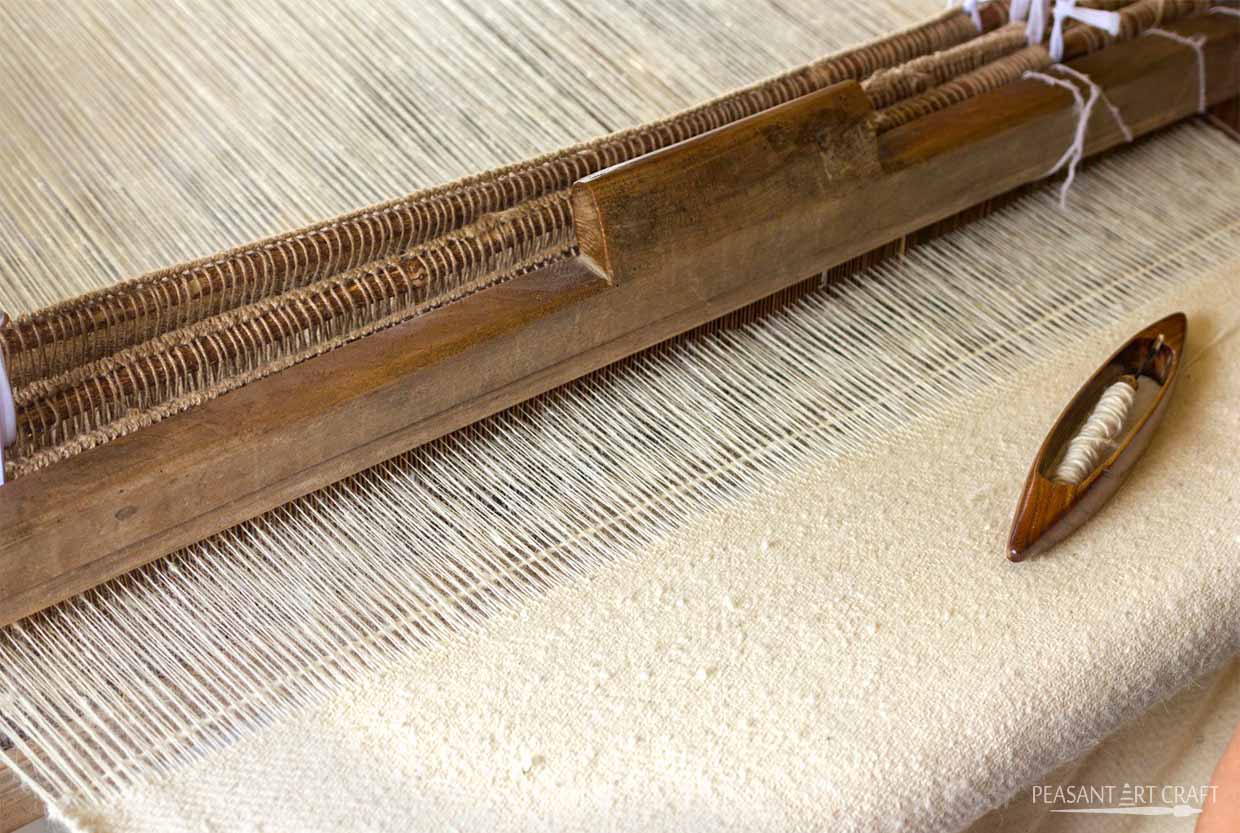



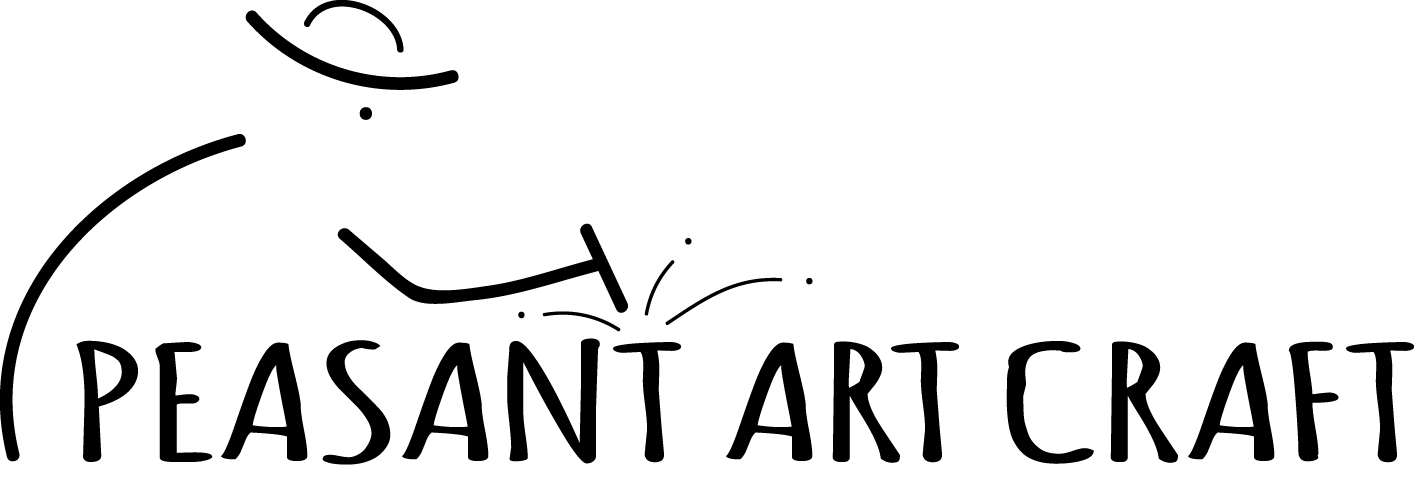

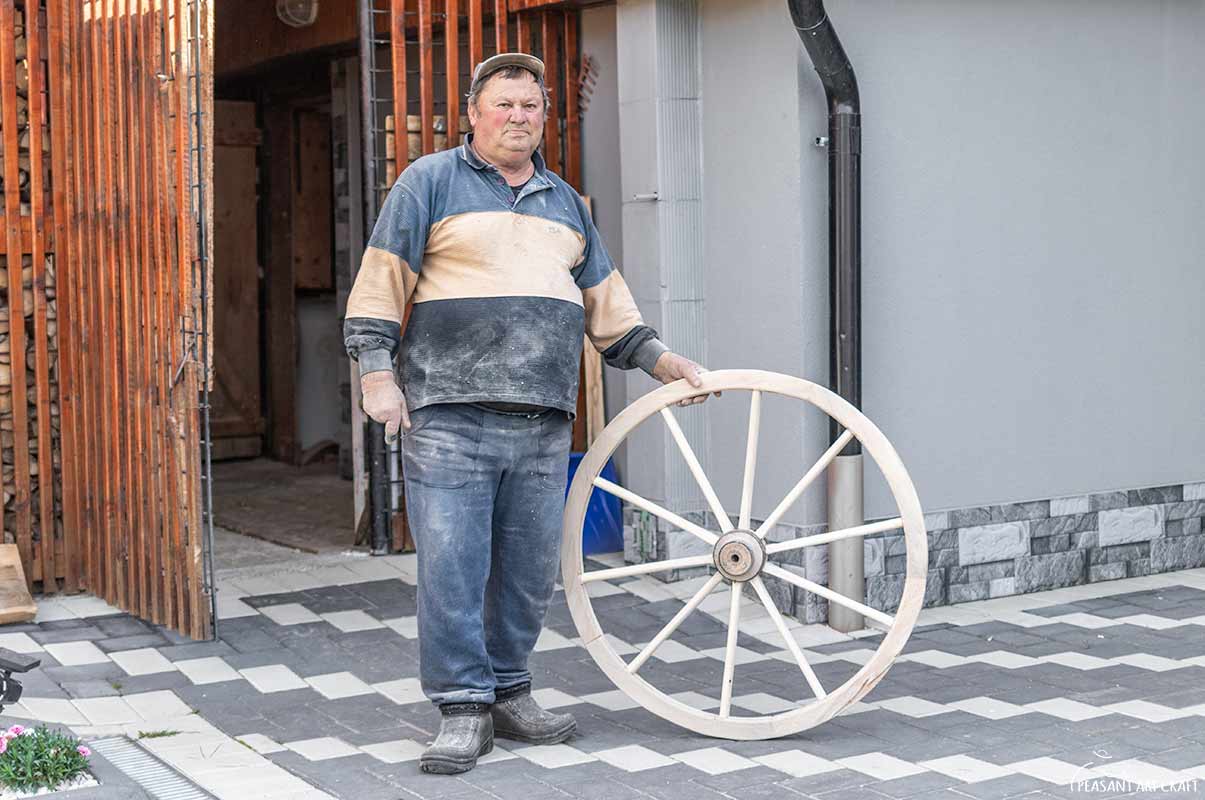

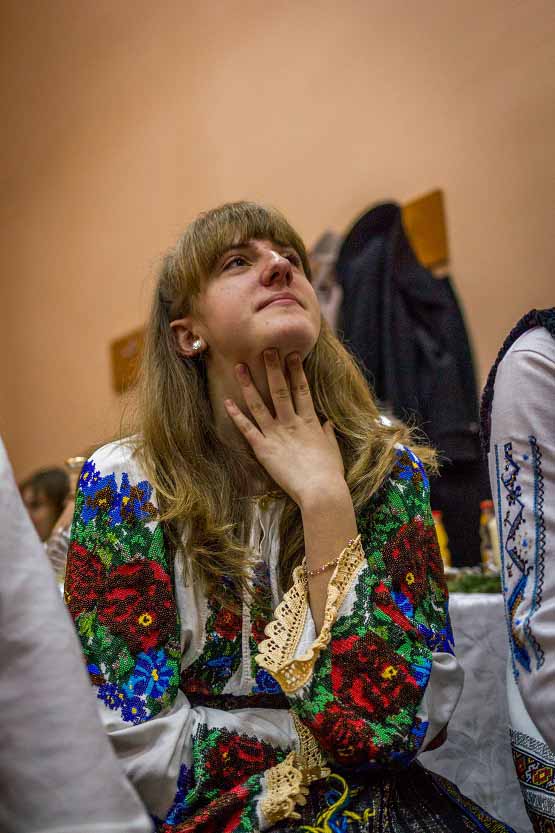
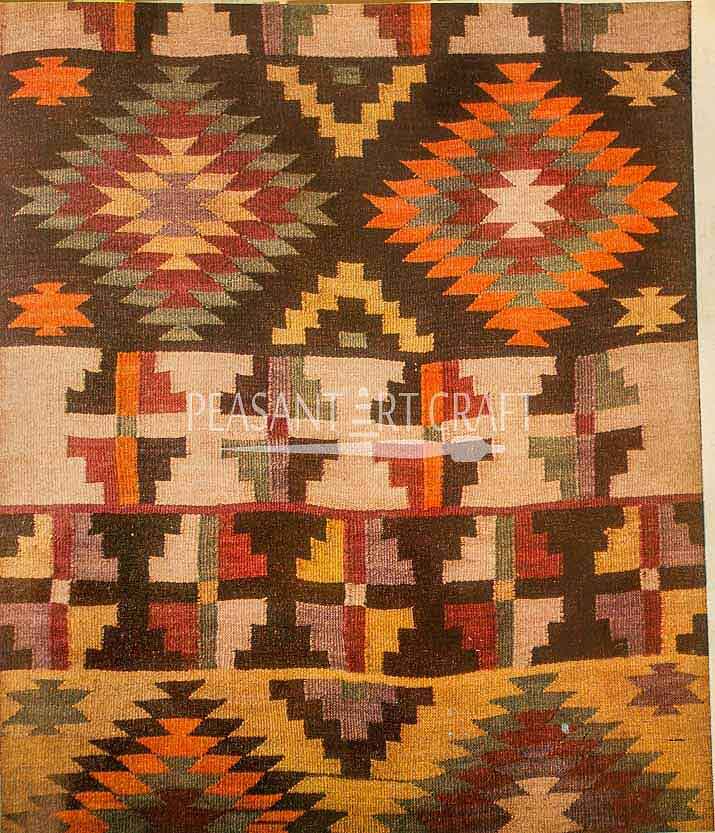
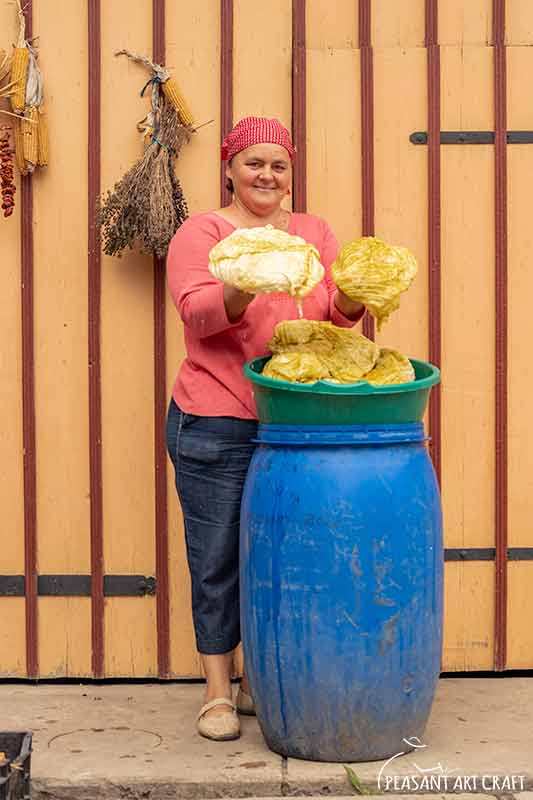





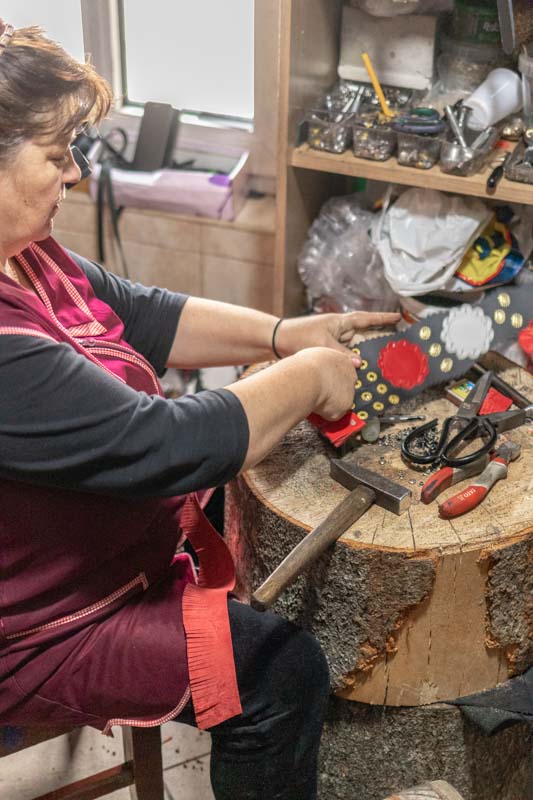
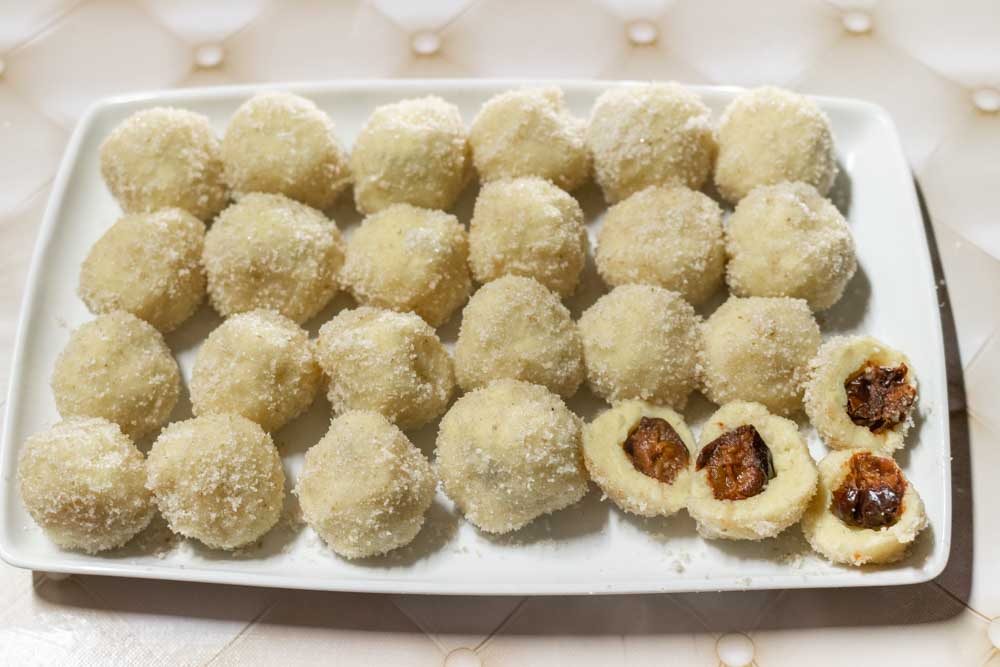

Leave a Comment